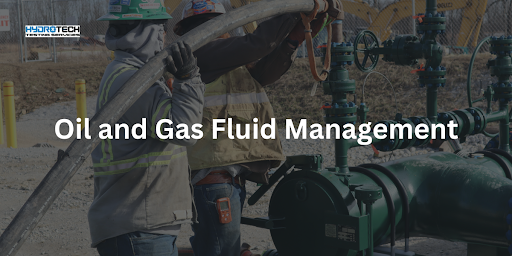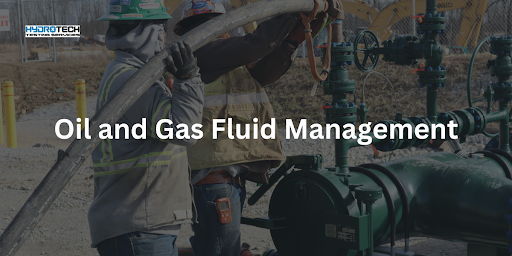
Oil and gas fluid management is an important part of operations in the oil and gas sector. Fluid byproducts from oil and gas operations can be harmful to the environment, and proper disposal is of the utmost importance. Additionally, as water supplies are becoming more scarce, and the need for water is greater than ever before, proper fluid management is key.
Why is Fluid Management Important?
Fluid systems are used to manage, store, transport, and dispose of different kinds of oil and gas products. A well-managed fluid management system can reduce the risk of accidents and ensure safe and efficient operations. Oil and gas water management is one of the most important aspects of oilfield operations.
Fluid Management in Oil and Gas Operations
The proper management of fluids is essential for efficient and safe operations. Oil and gas operators must be aware of their fluid systems, and know how to properly maintain and manage them. This includes understanding the different components of the systems, such as pumps, pipes, valves, and tanks, as well as how they interact with each other.
The Need For Fluid and Water Management
Water is used to hydraulically fracture oil and gas formations, to cool down and heat up equipment, and to carry away wastes. Additionally, hydrostatic pressure testing activities involve filling pipelines with large volumes of water to remain in a static, pressurized state. Having adequate amounts of water resources on-hand is important for making sure these processes run smoothly.
Additionally, produced water management is essential. Produced water is a major issue when it comes to oil and gas production. It is the liquid by-product of drilling and extracting oil and gas from underground reservoirs. Contaminated water is also produced at the end of pressure testing, and must be treated and disposed of properly to prevent environmental damages.
Fluid Management Systems
Because water management is a critical part of oil and gas fluid management, operators must be aware of the different types of water that can be present in their operations and how to properly manage water. This includes understanding the different types of water treatment systems and the potential impacts of operations on water sources.
Total fluid management is a comprehensive approach to oil and gas fluid management. It involves understanding the different components of the fluid system, and how they interact with each other, and the potential impacts of operations on the environment. These plans should include strategies to reduce water consumption, reuse water, and recycle water.
One key to effective water management is to identify local water sources and prioritize their use. Water should be sourced from local sources whenever possible to reduce the environmental impact of transporting water. Local water sources can also be used to reduce the cost of water.
Water disposal is also important. A primary method of produced water disposal is underground injection. During this process, the water is injected back into the ground, usually into nearby oil and gas reservoirs. In the case of pressure testing water waste, this fluid can be used for hydrostatic testing in other pipelines.
Choose HydroTech for Fluid Management
Successful oilfield operations in the oil and gas industry are dependent upon reliable fluid management systems. A big part of fluid management is access to water resources, and HydroTech has you covered.
With HydroTech, we can save you valuable time and money by providing full-service fluids management, whether it is water delivery or removal of fluids discharge. Maximize your efficiency and let HydroTech meet your needs with our fluids management solutions. Give us a call or check us out online today, and choose HydroTech.
















